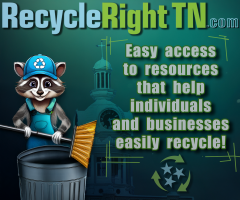Picking a Salesforce integration partner feels a bit like picking a co-pilot for a long flight: you want someone calm in turbulence, who knows the route, and who won’t panic when the instruments flash.
Suppose your business is gearing up to connect Salesforce with other systems. In that case, the partner you choose determines whether the project delivers speed and value or delays, cost overruns, and a fragile mess of point-to-point connections.
Here’s a practical, up-to-date guide to help U.S. teams pick the right fit when they search for a Salesforce integration service or decide to hire one.
What’s changed recently and why it matters
Two developments are reshaping integration projects right now.
- First, Salesforce has been pushing deeper into AI and data tooling (Agentforce 360 is a signal of that direction), which changes integration requirements with more context indexing, stricter data governance, and connectors built for AI workflows.
- Second, Salesforce’s expanding ecosystem and strategic acquisitions mean partners must be fluent not only in Apex and APIs but also in data platforms and modern middleware. These shifts affect architecture choices and partner skillsets.
So, the practical takeaway from here is that your integration partner should be current and conversant with Salesforce’s evolving platforms and with modern integration patterns such as APIs, event-driven architecture, iPaaS, and data fabric.
If you’re evaluating Salesforce integration services in usa, ask about recent projects that used these technologies.
Start with the outcome, not the tool
Good partners lead with outcomes. Don’t start by asking,“Can you connect X to Y?” Start with:
- What business process will this integration accelerate or automate?
- What data accuracy and latency do we need?
- Who owns data quality and schema changes going forward?
If a vendor responds with a feature list before probing your goals, that’s a red flag.
Look for partners who ask about reporting needs, SLAs, scalability, and security first. That way, you can avoid a brittle integration spaghetti approach.
Must-have partner traits
When you hire Salesforce integration service companies, use this checklist during shortlisting and interviews.
1. Proven integration credentials and certifications
Look for consultants with Platform Integration Architect / MuleSoft credentials and recent Salesforce certifications. MuleSoft certifications are now integrated into Salesforce’s certification paths, which matters for complex API and middleware work. Ask for specific certs and project case studies.
2. Partner Status transparency on AppExchange
Scour the partner’s AppExchange profile, client reviews, and Salesforce partner tier. AppExchange listings reveal product offerings, customer feedback, and vertical experience.
3. Architecture and data governance chops
Evaluate if your potential can propose a clear architecture with a dataflow diagram and the backup/recovery plan with clarity on
- when to use API calls vs. event streams,
- how to handle retries, error logging,
- data ownership, and GDPR/CCPA considerations.
4. Experience with your tech stack
Whether your team uses Oracle, SAP, Workday, NetSuite, or cloud data lakes, your partner must show real-world integrations of those specific systems, not theoretical knowledge.
5. Test automation and CI/CD for integrations
Ensure the partner has automated testing, sandbox promotion strategies, and observability (metrics/dashboards) for integrated flows.
6. Change management and training
Integration projects often disrupt user workflows. The right partner provides documentation, runbooks, training sessions, and a clear support model for post-go-live.
7. Commercial sense: fixed scope vs. value delivery
Beware vendors that only sell hours. Prefer partners who propose phased delivery with success metrics: small wins first, measurable ROI, then scale.
Shortlist places to look
There are thousands of partners on AppExchange.
For U.S. buyers, start at Salesforce’s partner finder, then narrow by partner reviews and case studies. Trade shows, Salesforce community groups, and referrals from peers in your vertical are also gold.
Finally, independent rankings and recent editorial lists can surface firms with a proven track record in integration work.
Questions to ask every finalist
When you meet potential partners, be prepared to ask these exact questions:
- Which integration patterns have you implemented for businesses like ours: synchronous APIs, streaming, CDC, batch ETL? Give examples.
- Who will be on our team day-to-day?
- How do you handle schema drift, backpressure, and retries for failed messages?
- Show a recent integration test plan and monitoring dashboard.
- How do you secure credentials and manage secrets across environments?
- What’s your post-go-live support SLA and escalation path (U.S. business hours, 24/7)?
- Provide references we can call who have had a similar scope and constraints.
If a vendor hesitates to answer or can’t provide references, move on.
Pricing: What to expect
Integration projects vary widely. Simple point-to-point connectors might be affordable, but enterprise integration (data governance, high throughput, many systems) costs more.
Ask vendors to price by phased outcomes: discovery, MVP (connect core systems), and scale (observability, redundancy, optimization).
This approach helps you decide when to hire Salesforce integration services and when to extend the scope.
Post-selection: set success metrics
Before work begins, codify success: reduction in manual reconciliations, time to data availability, transaction throughput, error rates, and user satisfaction scores. Put monitoring in place from day one so you’re not surprised after go-live.
Conclusion
Choosing a partner that understands modern data architectures, has proven Salesforce integration experience in the U.S., and can translate business goals into resilient technical designs will pay dividends.
If you’re searching for Salesforce integration services in USA, reach out to the integration experts at Synexc, who focus on outcomes, certifications, references, and governance. Contact today!













